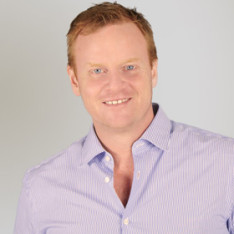Programmatic needs more transparency, and publishers need to think viewability argues panel
Publishers need to start thinking about the new viewability metric when designing their websites while programmatic traders need to be more transparent or risk endangering the industry, an industry forum was told last night.
Speaking on a panel looking at ad fraud at last night AdTech Meetup Sydney Stephen Dolan, the APAC managing director for programmatic ad analytics provider Integral, said ad fraud, websites serving advertising impressions which have no chance of being seen by a human being, was “easy money” for criminals, but sad the industry was taking steps to address it.
The issue of ad viewability, a recently introduced set of criteria which determines if an ad was served actually served in a viewable way to a person, was also discussed, with Dolan bemoaning a lack of action from publishers to take it into consideration in their web design.



Same talk, different people. Not enough doing.
Programmatic – the big black hole of future media investment
This will only be taken seriously by the industry once growth stops … Until then everyone is grabbing the money whilst it’s there to be grabbed.